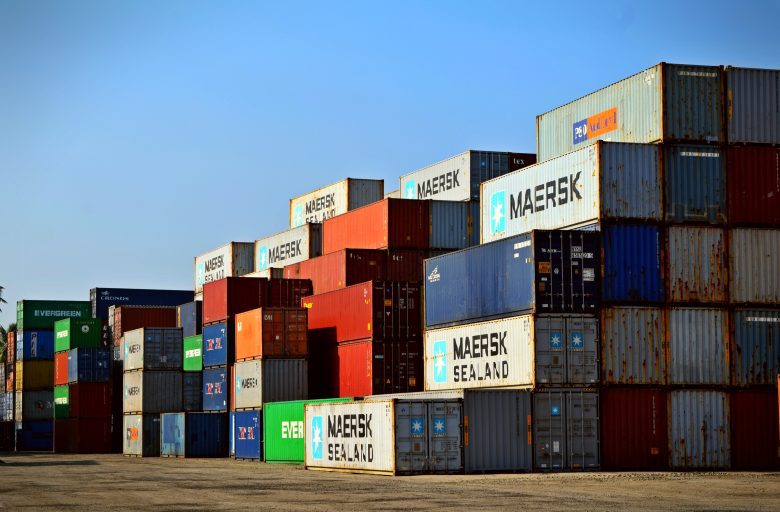Logistics needs changes, and Artificial Intelligence brings innovations to this field. There are a bunch of cool innovations like smart roads, autonomous vehicles, and so on.
In this guide, we’ll discuss the five most promising AI use cases in logistics. Moreover, we’ve listed companies that have already integrated this powerful technology and even got the revenue.
Statistics are quite impressive: Artificial Intelligence integration can bring revenue from $1.3 trillion to $2 trillion per year.
The primary purpose of AI implementation in logistics is to automate time-consuming processes and save money. As a result, a lot of tech enterprises (e.g. Google, Amazon) invest in this technology.
In our article, we’ve covered the following uses cases of AI in logistics:
- Automated warehouses
- Autonomous vehicles
- Smart roads
- Back office
- Demand prediction
AI in Automated Warehouses
Artificial Intelligence changes many warehousing operations like data collection, inventory processes, and more. It allows companies to increase revenues. Additionally, AI in warehouse automation is used to predicting the demand for certain products. As a result, companies can deliver the required goods to the local wirehouse. It leads to transportation expenses decreasing.
Warehouse automation is profitable since it allows conquering a lot of routine tasks. The leading technology used in this system is computer vision. It tends to identify and organize the goods in the warehouse. Also, the system can control the inventories’ quality.
Managing a lot of warehouses, the system can offer the fastest transportation solutions to deliver products faster.
- Ocado’s Success Story. Ocado is a supermarket chain located in the UK. It has already integrated an automated warehouse. The system is based on a robot called ‘hive-grid-machine.’ This robot can carry out 65,000 orders per week. ‘Hive-grid-machines’ main task is to move, sort, and lift goods inside the wirehouse.
AI in Autonomous Vehicles
Self-driven cars aren’t new for the market. However, they bring a bunch of cool innovation in the logistics field due to Artificial Intelligence. Self-driven cars allow saving time and money for the logistics companies.
For example, it’s possible to automate trucks and vans to bring positive changes to the transportation industry.
Nowadays, self-driven cars can work alone or cooperate with a human being. Also, it’s required to mind that the government from all over the world insists that there should be a driver in the car. It allows proving full control over the car.
- Waymo’s Success Story. Waymo was the first company that decided to create a commercial taxi service with self-driving cars. This innovative service was released in Phoenix, Arizona, in December 2018. Nowadays, the company is working on building driverless trucks. Waymo’s primary goal is to create safe trucks since they are vital for the economy, along with the logistics industry.
- Rolls-Royce’s Success Story. Rolls-Royce cooperates with Intel to develop self-driving ships. The company has been working on this idea since the 2010s. The enterprise achieved success and released the Intelligence Awareness system in 2018. This system can classify all the nearby objects under the water. Also, it can monitor the engine condition and provide the best routes. Of course, the system is profitable for the logistics industry of the ability to offer the fastest ways.
As you can see, self-driving technology brings a lot of benefits to the logistics field. Driverless vehicles offer to speed up the delivery process, find the best routes, and more. Additionally, autonomous cars lead to human mistakes reduction.
AI in Smart Roads
We’ve already mentioned self-driving cars, so it’s high time to move on with smart roads.
A lot of companies decided to invest in this solution. It tends to solve a bunch of regional problems. For example, the highway can be equipped with solar panels and LED lights. Solar panels can help produce electricity, while LED lights can alert drivers about the road conditions.
Moreover, solar panels prevent the highway from being slippery in winter. Profit for the logistics industry is obvious — there are no more delivery delays due to weather conditions.
- Integrated Roadways’ Success Story. Integrated Roadways has developed the Smart Pavement system. It allows connecting the vehicles and provides the drivers with real-life information about accidents, traffic jams, and so on. The Colorado Department of Transportation tests this system.
AI in Back Office
Artificial Intelligence makes the office work for the logistics companies more comfortable. For example, the compilation of AI and Robotic Process Automation (RPA) allows workers to increase the work quality.
For example, it’s common to automate repetitive tasks. A lot of companies create chatbots to automate customer support and bill payments. How to make a chatbot for a logistics company? You should consider the tasks chatbot has to deal with. It allows creating the right solution for your business.
AI-based chatbots lead to expenses reduction and precision improvement for the logistics companies.
- UiPath’s Success Story. This company tends to work on robotic equipment. They’ve already made a robot that could conquer approximately 99% of tasks since the robot can “see” screen elements.
AI in Demand Prediction
Companies want to know the number of required products. If there is a limited amount of goods, but the demand is high, the company loses possible revenue.
Artificial Intelligence tends to offer a lot of algorithms to predict trends and demand. The latest report even claims that these algorithms predict better than human experts.
AI tracks and measures all the necessary factors to increase the prediction accuracy. It leads to improvements in warehouse management.
It’s required to mention that AI offers more personalized goods. This technology analyzes customers’ interests and suggests products.
- DHL’s Success Story. DLH cooperates with Amazon to increase personalized customer experience. Amazon has created Alexa, a voice-based service. It’s able to answer any questions about the parcel’s location, delivery details, and so on. The system is quite simple. The user asks Alexa, ‘Where is my parcel?’ and finds out all the details.
To sum up our post, Artificial Intelligence changes the logistics sector. There are a lot of opportunities to use AI in this field, from smart roads to self-driving cars. This powerful technology allows for reducing expenses and saving time.



























